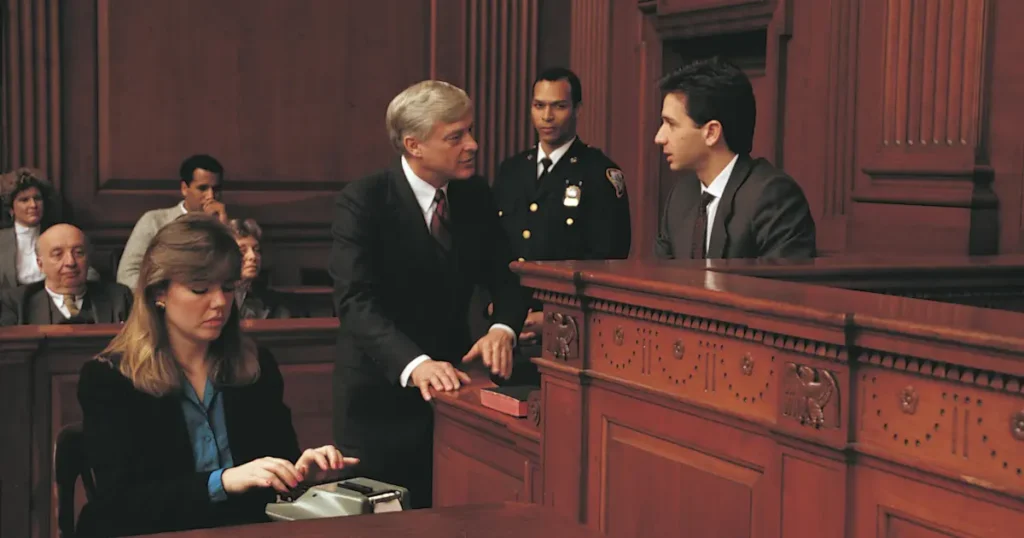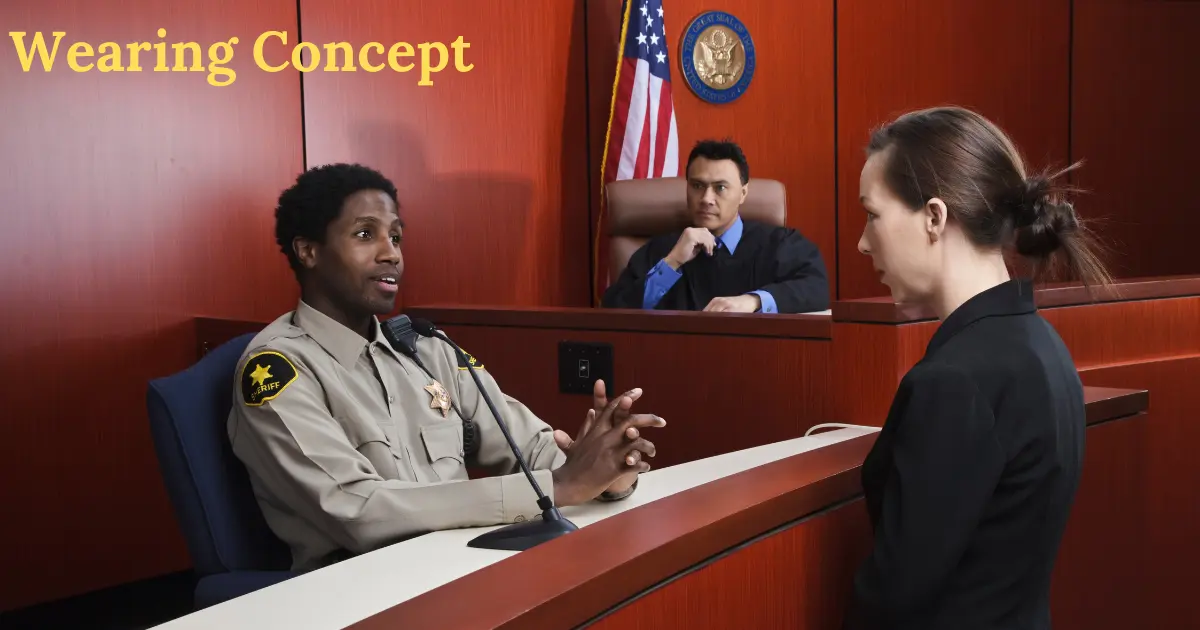Testifying in court can be a daunting experience. One crucial aspect often overlooked is what to wear. Your attire can significantly impact how you are perceived by the judge, jury, and others in the courtroom. This guide will help you understand the importance of appropriate courtroom attire and provide practical tips to ensure you make a positive impression.
The Importance of First Impressions

First impressions are crucial, and your appearance can influence how credible and trustworthy you are perceived to be. Dressing appropriately shows respect for the court and the legal process.
Psychological Impact on the Jury and Judge
Your attire can affect the jury and judge’s perception of you. Professional and modest clothing can enhance your credibility, while inappropriate attire might distract or even create a negative impression.
General Guidelines for Courtroom Attire
Dress Conservatively
Conservative dress is generally the safest choice for court. This means avoiding flashy or trendy clothing and opting for more traditional, understated attire.
Choose Neutral Colors
Neutral colors such as black, navy, gray, and white are recommended. These colors are professional and non-distracting.
Ensure Proper Fit
Your clothing should fit well, not too tight or too loose. Properly fitting clothes convey confidence and respect.
What Men Should Wear When Testifying in Court
Suits and Blazers
A suit or a blazer paired with dress pants is an excellent choice. Ensure the suit is well-fitted and in a neutral color.
Dress Shirts and Ties
Wear a clean, pressed dress shirt with a tie. Avoid loud patterns or colors; stick to classic, solid colors.
Shoes and Accessories
Wear polished dress shoes in black or brown. Limit accessories to a watch and a wedding ring if applicable.
What Women Should Wear When Testifying in Court
Suits and Dresses
A conservative suit, dress, or skirt and blouse combination is appropriate. Ensure skirts are knee-length or longer.
Blouses and Tops
Choose blouses and tops that are modest and not low-cut. Stick to neutral or solid colors.
Shoes and Accessories
Opt for closed-toe shoes with a modest heel. Keep accessories minimal and conservative.
Attire for Different Seasons
- Men: Lightweight suits in breathable fabrics.
- Women: Lightweight dresses or skirts with blouses.
Winter Courtroom Attire
- Men: Layer with a sweater or a vest under the suit.
- Women: Wool suits or dresses with tights.
Respecting Cultural and Religious Attire
If you have cultural or religious attire requirements, ensure they are neat and conservative. Inform your attorney beforehand to address any potential concerns.
Appropriate Attire for Men
| Item | Description | Notes |
|---|---|---|
| Suit | Neutral colors (black, navy, gray) | Well-fitted |
| Dress Shirt | Solid colors, clean, and pressed | Avoid bright colors |
| Tie | Classic patterns, neutral colors | Avoid loud patterns |
| Shoes | Polished dress shoes (black or brown) | Comfortable for long periods |
| Accessories | Minimal (watch, wedding ring) | No flashy jewelry |
Appropriate Attire for Women
| Item | Description | Notes |
|---|---|---|
| Suit/Dress | Conservative style, knee-length or longer | Neutral colors |
| Blouse | Modest, not low-cut, solid colors | Avoid bright patterns |
| Shoes | Closed-toe, modest heel | Comfortable for long periods |
| Accessories | Minimal (watch, wedding ring, simple jewelry) | No flashy jewelry |
What Should I Avoid Wearing When Testifying in Court?

Avoid casual clothing such as jeans, t-shirts, and sneakers. Steer clear of flashy, trendy, or overly bold clothing. Also, avoid excessive accessories or anything that might be distracting.
Can I Wear Religious or Cultural Attire in Court?
Yes, you can wear religious or cultural attire, but ensure it is neat and conservative. Discuss any potential concerns with your attorney before your court appearance.
How Should I Style My Hair for Court?
Keep your hairstyle simple and neat. Avoid extravagant styles or bold colors. For men, ensure facial hair is well-groomed. For women, opt for natural-looking hairstyles.
What Type of Shoes Are Appropriate for Court?
Choose closed-toe shoes that are comfortable for extended periods. For men, polished dress shoes in black or brown are ideal. For women, a modest heel or flats in neutral colors are appropriate.
Is It Necessary to Wear a Suit When Testifying in Court?
While a suit is highly recommended for both men and women, if you do not own one, opt for the next best professional attire such as dress pants and a blazer for men, and a conservative dress or skirt and blouse for women.
Additional Tips for Testifying in Court
Personal Grooming
Ensure your nails are clean and trimmed. Avoid excessive makeup or strong perfumes and colognes. Personal hygiene is essential to make a positive impression.
Confidence and Comfort
Wear clothes that make you feel confident and comfortable. Being at ease with your attire can help you focus better on your testimony.
Preparing in Advance
Lay out your outfit the night before to avoid any last-minute stress. Ensure all items are clean, pressed, and fit well.
Consult with Your Attorney
Discuss your attire with your attorney beforehand. They can provide specific advice based on the court’s expectations and norms.
Conclusion
What you wear when testifying in court can significantly impact how you are perceived. Dressing conservatively and professionally shows respect for the court and enhances your credibility. By following the guidelines provided in this article, you can ensure that your appearance supports your testimony rather than distracts from it. Remember to consult with your attorney for any specific advice and prepare your outfit in advance to minimize stress on the day of your testimony.
FAQs
Here are some frequently asked questions given below:
Can I wear casual clothes if the court session is informal?
No, even if the court session seems informal, it is crucial to dress professionally. Casual clothes can create a negative impression.
Are there any specific colors I should avoid wearing in court?
Avoid bright, flashy colors and patterns. Stick to neutral, subdued colors such as black, navy, gray, and white.
Can I wear accessories in court?
Yes, but keep accessories minimal and conservative. Avoid flashy or distracting jewelry.
How should I handle tattoos and piercings when testifying in court?
If possible, cover tattoos with clothing. Remove any excessive piercings to maintain a professional appearance.
Is it acceptable to wear cultural or religious headwear in court?
Yes, it is acceptable to wear cultural or religious headwear. Ensure it is neat and conservative, and inform your attorney beforehand.
